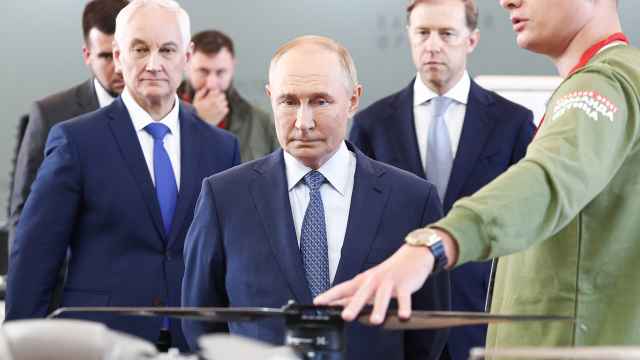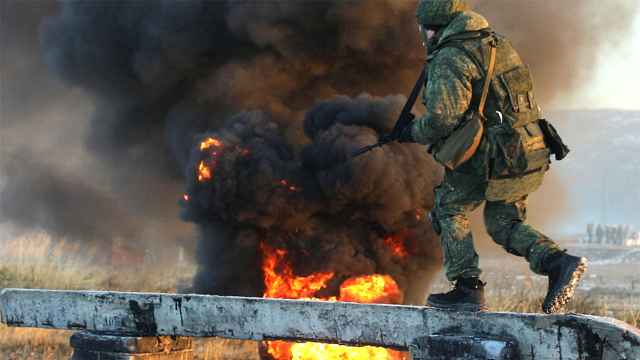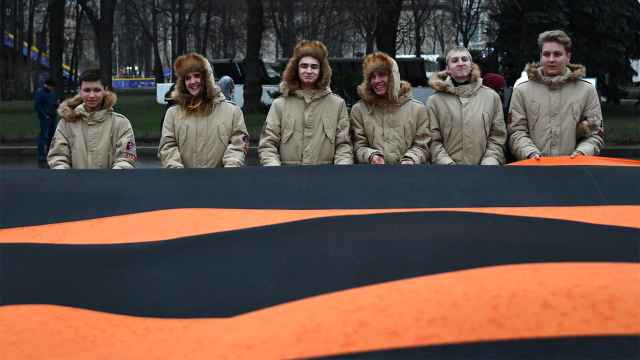An elderly man charged with trying to set fire to a Russian military enlistment office has been found dead in his home near St. Petersburg, local media reported late Thursday, amid a nationwide wave of arson attacks linked to phone scams.
The 76-year-old was detained on Wednesday after cameras captured him throwing Molotov cocktails at an enlistment office in the town of Vsevolozhsk, located just east of St. Petersburg.
It was among at least 30 Russian military enlistment offices to have been targeted over the past week in which many of the suspects told authorities they had acted on the instructions of phone scammers.
Though none of the arson attacks led to serious damage, authorities have launched criminal investigations in 10 out of the 30 cases, according to the independent news website Mediazona.
Police released the 76-year-old man in Vsevolozhsk on Thursday on the condition that he appear in court on charges of attempted property destruction, according to St. Petersburg’s news website Fontanka.
He was found dead later that day in his apartment, Fontanka said, adding that authorities believe he had committed suicide.
Mash, a Telegram channel with purported links in Russia’s security services, identified the man by his first name and patronymic Valery Mikhailovich, a widower with 40 years of experience as a leading engineer in Russia’s defense industry.
The outlet reported that scammers had persuaded the 76-year-old to sell the apartment where he was later found dead, transfer the money to an undisclosed account, then commit arson to recover the amount.
It was not immediately possible to independently verify Mash’s report or whether the authorities planned to continue pursuing the criminal case against him.
A Message from The Moscow Times:
Dear readers,
We are facing unprecedented challenges. Russia's Prosecutor General's Office has designated The Moscow Times as an "undesirable" organization, criminalizing our work and putting our staff at risk of prosecution. This follows our earlier unjust labeling as a "foreign agent."
These actions are direct attempts to silence independent journalism in Russia. The authorities claim our work "discredits the decisions of the Russian leadership." We see things differently: we strive to provide accurate, unbiased reporting on Russia.
We, the journalists of The Moscow Times, refuse to be silenced. But to continue our work, we need your help.
Your support, no matter how small, makes a world of difference. If you can, please support us monthly starting from just $2. It's quick to set up, and every contribution makes a significant impact.
By supporting The Moscow Times, you're defending open, independent journalism in the face of repression. Thank you for standing with us.
Remind me later.






